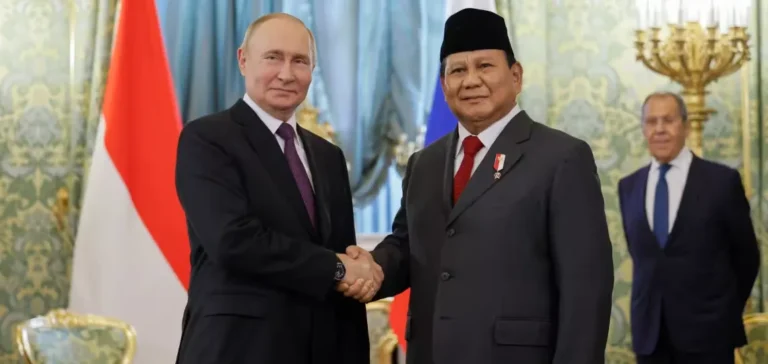Indonesian President Prabowo Subianto will travel to Saint Petersburg to hold direct talks with his Russian counterpart Vladimir Putin. The stated objective is to reinforce bilateral cooperation in several key sectors, including civil nuclear energy, defence, maritime security, and trade exchanges. This meeting will take place alongside the annual Economic Forum held in this northern Russian city, where Vladimir Putin is set to deliver a speech awaited by the international community. The visit highlights the strategic importance Jakarta attributes to its diplomatic and economic relations with Moscow.
Civil nuclear and military cooperation
Speaking at a press conference in Moscow, Russian Foreign Minister Sergei Lavrov indicated that Rosatom, the Russian federal agency for atomic energy, stands ready to assist Indonesia in building a civil nuclear power plant. This project aligns with Moscow’s broader ambition to enhance its energy partnerships in Southeast Asia. Lavrov also mentioned the possibility of conducting joint military exercises, demonstrating closer military cooperation between the two nations. These statements underline the strengthening of ties in areas considered strategic by both countries.
Development of economic relations
Currently, trade exchanges between Russia and Indonesia amount to approximately $4.5 billion annually. Minister Lavrov stressed that these figures could increase significantly with new bilateral trade and investment initiatives. Indonesia’s recent entry into the BRICS group (Brazil, Russia, India, China, South Africa) further opens the door to potentially beneficial multilateral economic partnerships. Jakarta’s integration into this economic bloc thus reinforces the strategic importance of the discussions planned in Saint Petersburg.
Regional geopolitical context
In 2024, Jakarta refuted information published by the defence-specialised media Janes, regarding a potential Russian request to station military aircraft in the Indonesian province of Papua. The news raised concerns in Australia, a neighbouring country located approximately 1,200 kilometres from this eastern region of Indonesia. The formal denial by Indonesian authorities aimed to alleviate regional fears about possible military escalation in the area. Nevertheless, exchanges between Jakarta and Moscow during this visit could still attract close scrutiny from other regional powers, notably Australia and the United States.






















